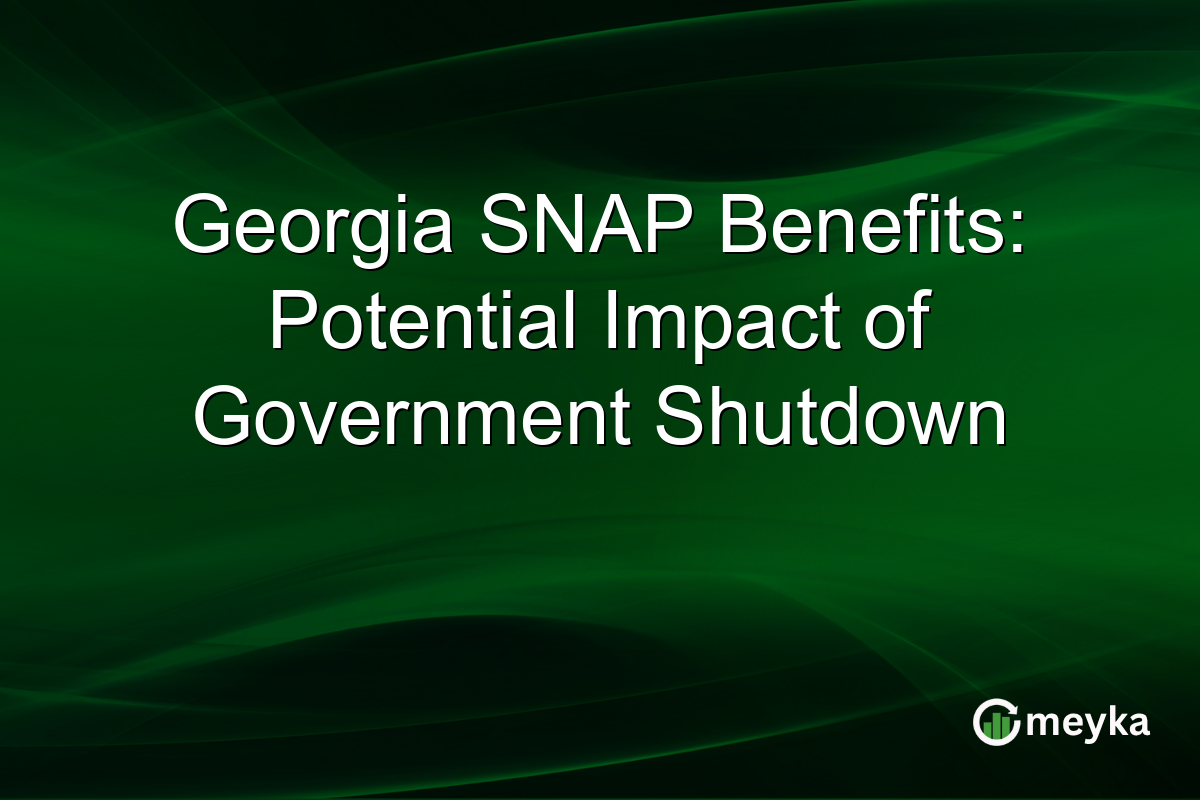Georgia SNAP Benefits: Potential Impact of Government Shutdown
The looming government shutdown poses a significant risk to Georgia SNAP benefits, potentially impacting thousands in November. With thousands depending on these benefits for essential nutrition, concerns are rising. Local Democrats and officials are advocating for state-led emergency initiatives to mitigate the effects. This exploration will delve into the potential impacts and possible solutions to safeguard vulnerable groups reliant on SNAP.
Understanding the Potential Impact on SNAP Benefits
A government shutdown halts federal funding, directly affecting SNAP payments. In Georgia, this impact is severe, as nearly 1.6 million residents depend on SNAP. A halt in November payments could lead to food insecurity. Georgia’s state officials face pressure to provide solutions quickly. Historically, shutdowns have caused delays, so local interventions are vital. This stress on food systems highlights the need for long-term strategies to prevent recurrence.
Emergency Initiatives: Georgia’s Response Plan
Georgia’s emergency initiative aims to buffer the effects of halted SNAP benefits. Proposed measures include state-backed food distributions and partnerships with local food banks. These efforts target the immediate needs of those without federal assistance. By supporting local resources, the state hopes to prevent widespread food insecurity. Officials stress the importance of quick action to ensure no family is left without support during the shutdown.
Government Shutdown Effects Beyond Nutrition
While SNAP benefits are crucial, the shutdown’s impact spans other sectors too. State health programs and educational services face potential disruptions. This comprehensive effect could strain community resources further. Georgia’s response includes broader initiatives to maintain health and education services stability. By addressing these areas, the state aims to alleviate the compounded stress on vulnerable populations. For those reliant on multiple assistance programs, the shutdown represents a significant risk to overall well-being.
What’s Next for Georgia Residents?
Looking ahead, Georgia could implement more robust contingency plans. Advocates call for permanent state funds to buffer future shutdowns. Updating legislative frameworks to allow quicker state intervention is one suggestion. These steps could safeguard residents from future federal funding disruptions. Community engagement remains crucial, emphasizing the role of local support networks. As debates continue, the focus stays on securing the welfare of those in need.
Final Thoughts
The government shutdown threatens essential resources such as Georgia SNAP benefits, highlighting vulnerabilities in dependency structures. Emergency initiatives provide short-term relief, but long-term strategies are crucial. Georgia’s immediate actions are vital to support its residents, ensuring that those dependent on SNAP are not left hungry. Future planning, with improved state-level safety nets, can build resilience against potential federal funding challenges. By proactively engaging, Georgia can turn a potential crisis into an opportunity for systemic improvement.
FAQs
During a shutdown, federal funds for programs like SNAP may freeze, delaying payments. This can lead to food insecurity for millions who depend on monthly assistance.
Georgia is considering emergency initiatives, including partnerships with food banks, to distribute resources to those affected. Quick action is necessary to support vulnerable groups.
Yes, beyond SNAP, other public services such as health and education could face disruptions, affecting the overall well-being of those relying on government support.
Disclaimer:
The content shared by Meyka AI PTY LTD is solely for research and informational purposes. Meyka is not a financial advisory service, and the information provided should not be considered investment or trading advice.






